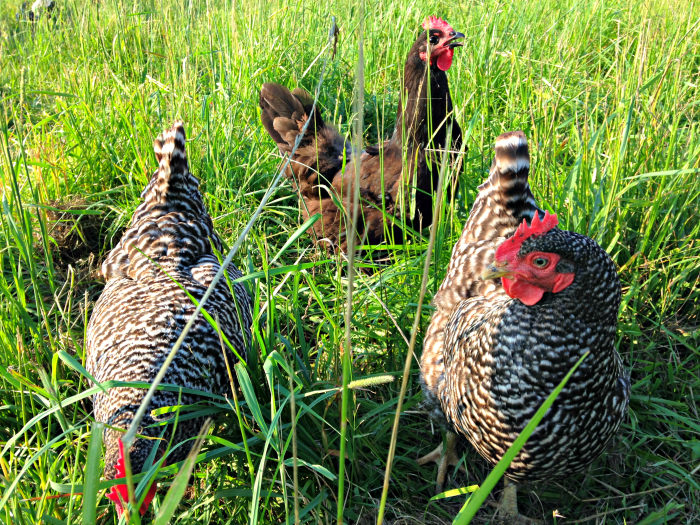
When you can’t find good eggs or poultry, raise your own, right? That’s what the Laytons decided to do and now they’ve got a whole farm.
NOTE: The Laytons moved to a new location in 2015. You can find them now at 1614 Ridge Rd in Sellersville, PA 18960
When I first heard that there was a new poultry farm in Chalfont, I was a bit puzzled. Chalfont? Don’t get me wrong, it’s a lovely community, but there isn’t a lot of farmland left in Chalfont, and I was hard pressed to picture it. As it turns out, Hershberger Heritage Farm, Bucks County’s newest poultry farm, is nestled in one of Bucks County’s oldest family farms, Meadow Breeze Farm, on Walter Road in Chalfont.

Walter Detweiler owns Meadow Breeze Farm (and farm market), a 60 acre property that’s been in his family for generations. It used to be a full-time dairy, but now he raises beef and grows hay. Unfortunately, his children are not taking over the farm, and at 69 years old, Detweiler is ready to retire. But he is interested in leasing out his assets. And that’s good for Nathan and Shelah Layton.
The cost of land being what it is in Bucks County, it’s near impossible for young farmers starting out to own land. That’s why it’s so exciting to see an older farmer extending a hand to a new farmer, and finding new ways to keep our local farmland producing food.
The Laytons are leasing six acres on Meadow Breeze Farm to pasture-raise chickens for eggs and meat. Detweiler generously includes use of his tractors, electricity, barn space and water in the agreement, and is encouraging the Laytons to lease more next year. You couldn’t ask for a better landlord.
Hershberger Heritage Farm came into being just this past March (named after Nathan’s maternal grandfather, Richard Hershberger). “We got started because we wanted eggs and poultry that was non-GMO, and we were having a hard time finding them,” says Nathan. Most people, faced with this problem, would not start a poultry farm. Luckily for us, the Laytons decided they would. And they decided to raise their chickens using “beyond organic” farming practices. But what does mean?
“Most organic products are produced using great standards but they can still be called organic even if organic pesticides and herbicides are used,” Nathan explains. “Our operation introduces zero foreign substances to our animals—no vaccines, no antibiotics, and their feed is tested for herbicides, pesticides, fungicides, and GMOs. We care about each chicken we raise.”
Nathan comes from a multi-generational farming family. His grandfather owned a 700 acre dairy and beef farm in Bedford County, PA and Nathan spent a lot of his childhood there. Unfortunately his grandfather passed away when Nathan was in high school, so he wasn’t able to work the family farm. “But I’m kind of glad I didn’t learn that way,” he says, referring to the more conventional ways of farming. Instead, he has embraced sustainable and environmentally friendly methods.
Nathan joined the Air Force after high school, doing tech work both stateside and abroad. After his honorable discharge in 2009, he and Shelah, now in their early 30’s, settled down in Bucks County. But they had this itch to farm, and they wanted quality, organic food for their family.
So they spent 1½ years researching the poultry business. The movie Food Inc. was pivotal for them. In the film, Joel Salatin of Polyface Farm in Virginia, speaks passionately about raising animals using rotational pasture practices. This is how it works. Let’s say you are raising chickens and sheep. The sheep graze a pasture, munching away and fertilizing the soil as they go (get the picture?). Flies and other insects like to lay their larvae on those convenient patties. Chickens love to eat insects. Move the sheep to a different pasture after they’ve mowed down one, and then move the chickens over to the newly vacated pasture. Lots of insects for the chickens, as well as shorter grass. Everyone is happy. It’s a natural, sustainable approach to animal husbandry that allows the animals to live as they were meant to, not crowded into industrial feed lots and enclosed chicken coops.
Nathan has built two chicken “tractors,” 10-12 foot square structures for the meat chickens (broilers) that allow the chickens to roam and do their pecking thing, exposed to fresh air and pasture, but protected from predators. The tractors are movable, so the birds can easily be shifted to fresh pasture, which they are every morning. He has also built two “Egg Mobiles,” which are chicken coops that can be rolled around. He can set one up in a pasture, and the hens (layers) can come and go as they please, with access to feed and water, and a place to nest and lay eggs.
Right now, the farm has 215 layers with about 85 hens laying. They are currently producing 35-40 dozen eggs per week and expect to produce 80-90 dozen when all 215 hens are laying.
The Laytons are also raising chickens for meat, processed right on the farm, to sell both fresh and frozen. To date they have raised 305 broilers but two more batches of 100 will arrive in the coming months. Right now, they are processing the broilers every 3 weeks. I don’t know of any other farm in Bucks that is producing chicken at this level. It’s exciting to have a full time poultry operation, with animals raised on pasture and with non-GMO feed, so close by.

Nathan’s day begins at 5 am (as does Shelah’s – she’s at home raising their 5 year old son, Tyler, and their six month old, Drake). From their house in Perkasie, he drives to Chalfont to make sure the chickens are set for the day with food and water. Then he drives to his full-time job in Princeton, where he is a Customer Support Manager at SRI. At the end of the day, he drives back to Chalfont to check on the chickens, and then goes home. He is also a full-time student at Delaware Valley College, taking three classes online and one at night, majoring in business with a focus on entrepreneurship.
When the Laytons decided to start the farm, it was a huge commitment. They sold their house, downsized and now rent a townhouse. They even gave up cable. But they are pursuing something they are passionate about, that they feel good about, and that they want to succeed. Fortunately for the rest of us, we get some great food out of it too.
Hershberger Heritage Farm
1614 Ridge Rd
Sellersville, 18960
PH: 215.500.7301
WEB: www.HershbergerHeritageFarm.com
Facebook: Hershberger Heritage Farm
Email: HershFarm@gmail.com
The Laytons also offer a CSA (Community-Supported Agriculture) for a 23 week (roughly 5-month) Share of your choice of the following products, Chicken, Eggs, and Pork. The growing season runs from end of May through end of October. Click here for more information.
Updated August 7, 2017

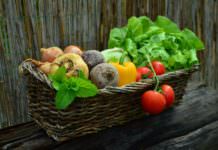


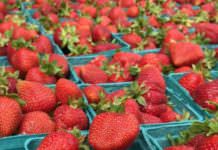
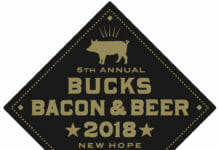


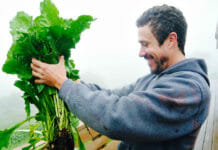
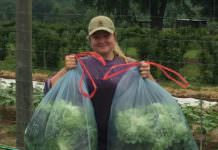
![What we’re reading [Oct 16 2017]](https://www.buckscountytaste.com/wp-content/uploads/2017/10/coffee_macbook_reading_pexels-photo-414630-218x150.jpeg)
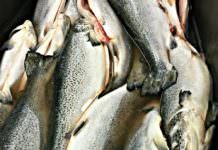
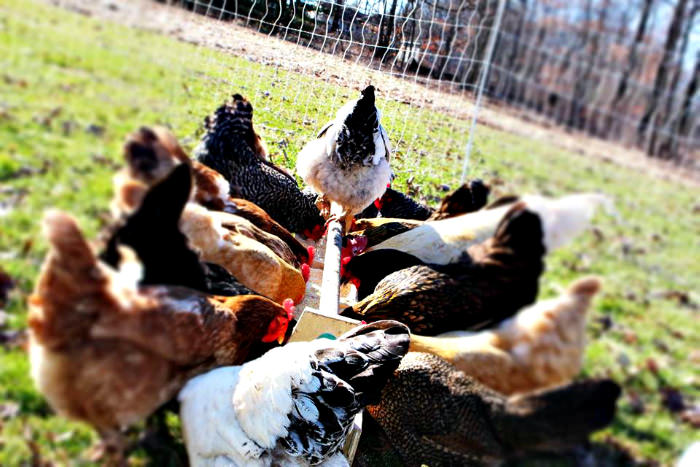
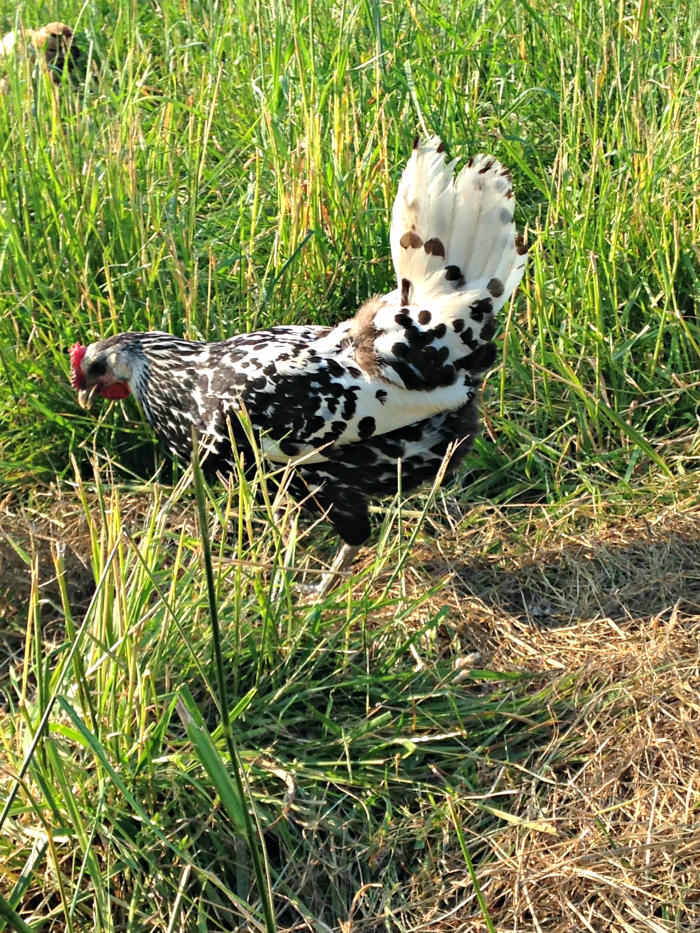

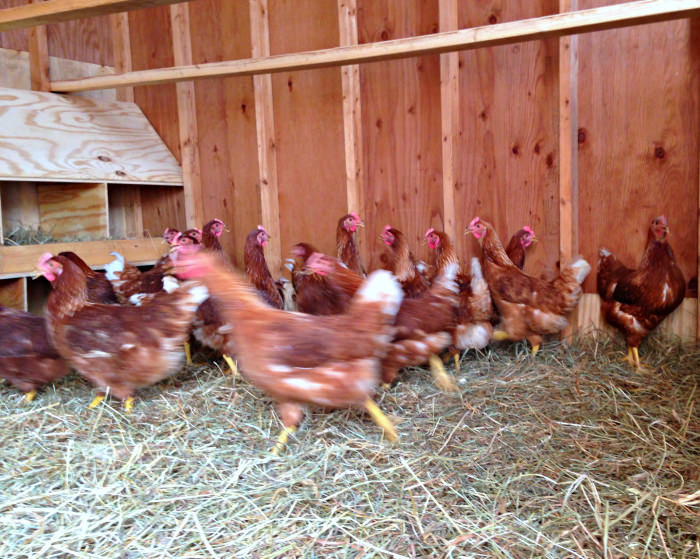
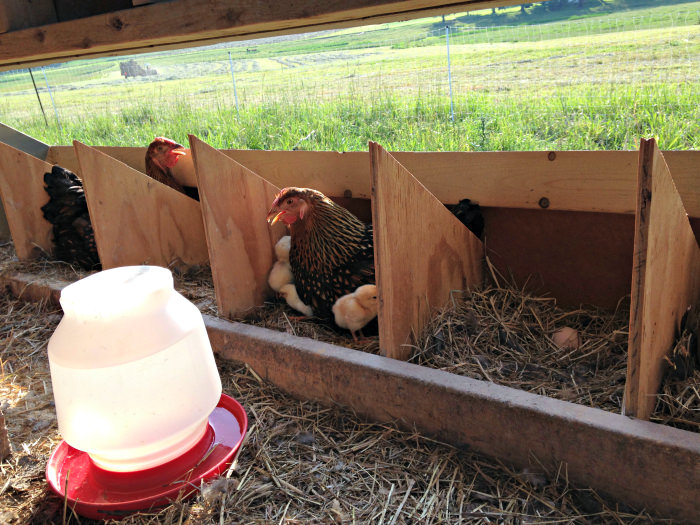

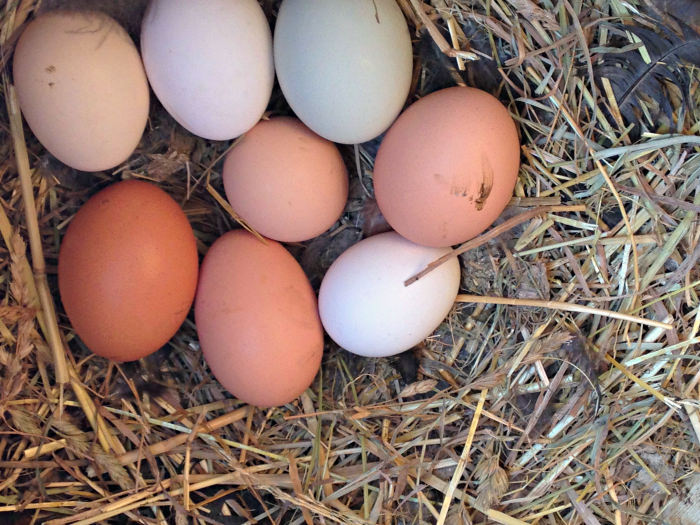
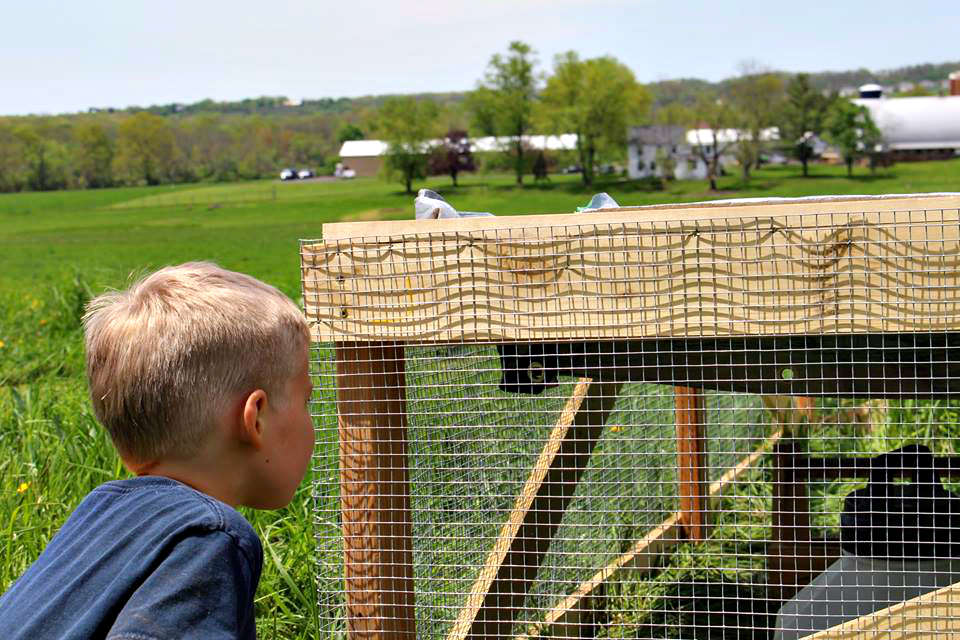
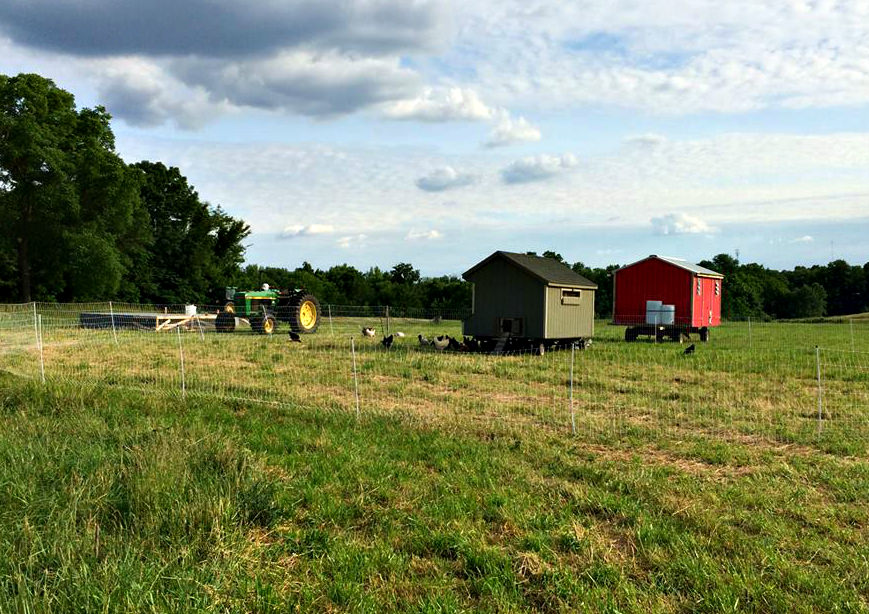
[…] Hershberger Heritage Farm (Chalfont). Free range chickens, raised organically, and eggs. Phone: 215.500.7301, or email: HershbergerHeritageFarm@gmail.com. Also on Facebook at: Hershberger Heritage Farm. Read our post here. […]
great to see you promoting people who raise their animals cruelty free . hooray for you.
[…] July I wrote about Hershberger Heritage Farm, a new farm in Chalfont raising chickens. It is so exciting to have one more farm offering fresh […]
[…] wrote about the new poultry farm, Hershberger Heritage Farm, in July 2014. The farm, raising chickens for both eggs and meat, has now moved to Sellersville […]
[…] July I wrote about Hershberger Heritage Farm, a new farm in Chalfont raising chickens. It is so exciting to have one more farm offering fresh […]